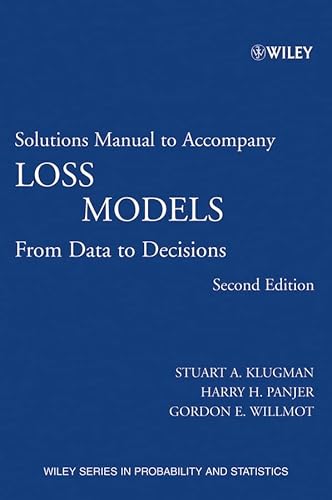Klein Wiley Solution Manual
Visionaire concentrator service manual. Leak test unit. A leak in the unit, which allows system pressure to escape.
What are Chegg Study step-by-step Organic Chemistry 3rd Edition Solutions Manuals? Chegg Solution Manuals are written by vetted Chegg Organic Chemistry experts, and rated by students - so you know you're getting high quality answers. Solutions Manuals are available for thousands of the most popular college and high school textbooks in subjects such as Math, Science (, ), Engineering (, ), and more. Understanding Organic Chemistry 3rd Edition homework has never been easier than with Chegg Study.
Why is Chegg Study better than downloaded Organic Chemistry 3rd Edition PDF solution manuals? It's easier to figure out tough problems faster using Chegg Study. Unlike static PDF Organic Chemistry 3rd Edition solution manuals or printed answer keys, our experts show you how to solve each problem step-by-step. No need to wait for office hours or assignments to be graded to find out where you took a wrong turn. You can check your reasoning as you tackle a problem using our interactive solutions viewer. Plus, we regularly update and improve textbook solutions based on student ratings and feedback, so you can be sure you're getting the latest information available. How is Chegg Study better than a printed Organic Chemistry 3rd Edition student solution manual from the bookstore?
Our interactive player makes it easy to find solutions to Organic Chemistry 3rd Edition problems you're working on - just go to the chapter for your book. Hit a particularly tricky question? Bookmark it to easily review again before an exam. The best part?
As a Chegg Study subscriber, you can view available interactive solutions manuals for each of your classes for one low monthly price. Why buy extra books when you can get all the homework help you need in one place?
Students often say, 'I studied 40 hours for this exam and I still didn't do well. Where did I go wrong?' Most instructors hear this complaint every year.
In many cases, it is true that the student invested countless hours, only to produce abysmal results. Often, inefficient study habits are to blame. The important question is: why do so many students have difficulty prepar Students often say, 'I studied 40 hours for this exam and I still didn't do well. Where did I go wrong?' Most instructors hear this complaint every year. In many cases, it is true that the student invested countless hours, only to produce abysmal results.

Often, inefficient study habits are to blame. The important question is: why do so many students have difficulty preparing themselves for organic chemistry exams? There are certainly several factors at play here, but perhaps the most dominant factor is a fundamental disconnect between what students learn and the tasks expected of them. To address the disconnect in organic chemistry instruction, David Klein has developed a textbook that utilizes a skills-based approach to instruction. The textbook includes all of the concepts typically covered in an organic chemistry textbook, but special emphasis is placed on skills development to support these concepts.
This emphasis upon skills development will provide students with a greater opportunity to develop proficiency in the key skills necessary to succeed in organic chemistry. As an example, resonance structures are used repeatedly throughout the course, and students must become masters of resonance structures early in the course. Therefore, a significant portion of chapter 1 is devoted to drawing resonance structures. Two chapters (6 and 12) are devoted almost entirely to skill development. Chapter 6 emphasizes skills that are necessary for drawing mechanisms, while chapter 12 prepares the student for proposing syntheses. In addition, each chapter contains numerous Skillbuilders, each of which is designed to foster a specific skill.
Each skillbuildercontains three parts: 1. Learn the Skill: a solved problem that demonstrates a particular skill; 2.
Practice the Skill: numerous problems (similar to the solved problem) that give the students an opportunity to practice and master the skill; 3. Apply the Skill: one or two more-challenging problems in which the student must apply the skill in a slightly different environment. These problems include conceptual, cumulative, and applied problems that encourage students to think out of the box. Sometimes problems that foreshadow concepts introduced in later chapters are also included.


All SkillBuilders are visually summarized at the end of each chapter (Skillbuilder review), followed by a list of suggested in-chapter and end-of-chapter practice problems. I am begging anyone using Klein's Organic Chemistry textbook to get their hands on this solutions manual. The solutions are scrupulously presented, and they almost always address all of the questions I encounter while working out the problems. Often, they provide additional information that I may not have been thinking about while working the problem. Even if I get a problem right, I almost always come away with a better understanding after viewing their solutions.
Klein Wiley Solution Manual Pdf
I have seen my fair share of g I am begging anyone using Klein's Organic Chemistry textbook to get their hands on this solutions manual. The solutions are scrupulously presented, and they almost always address all of the questions I encounter while working out the problems. Often, they provide additional information that I may not have been thinking about while working the problem. Even if I get a problem right, I almost always come away with a better understanding after viewing their solutions.
I have seen my fair share of garbage solutions manuals; this one is the cream of the crop.
Comments are closed.